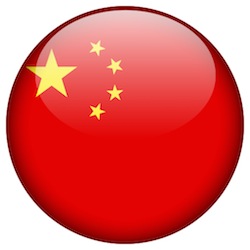Emerging Markets
INTERVIEW: China's Ascent Isn't Going To Stop, So Stay Aboard - Wells Fargo AM

A fund manager, reflecting on recent market turmoil in China, argues that the big picture is promising and urges investors to gain a sense of perspective.
There is a lot of nervousness about over China’s economy and markets. Considering the stomach-churning declines in equities since the start of the year, such queasiness does not come as a surprise. Since the beginning of January, the MSCI China Index is down 12.7 per cent; the MSCI China A 50 Index (tracking the 50 largest mainland shares) is down 17.7 per cent. Another measure, the Shanghai Composite Index of shares, is down almost 24 per cent.
Even before the latest sell-offs in China’s markets in late January, a global survey of fund managers by Bank of America Merrill Lynch (see here) showed that asset allocators were taking risk bets off the table and adding to cash. Does all this red ink mean that it makes sense to give China the cold shoulder for the time being?
The answer to that question is a blunt “no” from Anthony Cragg, a
senior portfolio manager of the Luxembourg-registered China
Equity Fund and Emerging Markets Equity Income Fund at Wells
Fargo Asset Management. He spoke to this news service recently
about his investment views and why the negativity about China is
overdone, even foolish.
“Clearly China has significant problems and challenges in
managing the slowing growth rate of its economy; this problem has
been very well known and hugely discounted now by the markets;
the market is also very under-owned,” Cragg said.
“There is currently a huge tendency to blame China for everything going wrong in the world. The economy is still growing faster than for any major country apart perhaps from India. In the West, even years of massive quantitative easing and ultra-low interest rates have still not managed to generate significant growth,” he said.
Cragg brings a measure of credibility to the school of thought urging investors to take a deep breath. The China equity team of which he is a part outperformed the MSCI China index by 10.51 per cent in 2015. The Wells Fargo AM China Equity Fund, started at the end of January 2009, delivered annualised returns over five years of 3.46 per cent, beating the MSCI China Index of 0.65 per cent. (That fund, denominated in dollars, has just over $51.5 million of assets under management.) Cragg, who is based in the US, burns up the airways to make regular trips to China; several members of his team are Mandarin speakers and have close knowledge of the country.
A great deal of returns have been generated, Cragg said, by unearthing those sectors able to benefit from long-term, structural changes in China as it moves from a metal-bashing economy to one more focused on service and the consumer. This shift has been spoken of for a while, of course.
“We play new China over old China,” Cragg said. He notes that sectors showing long-term secular growth, such as consumer-related, healthcare, tourism and environmental protection, are good bets. His firm uses the usual array of valuation metrics, as well as judgement based on frequent on-site visits to firms, in deciding its investment.
According to the equity fund’s factsheet (updated as of December last year), the single largest holding in the fund is China Mobile (6.22 per cent), followed by Tencent Holdings (6.14 per cent), then China Construction Bank Corp H-Shares (5.22 per cent). Insurers and banks also feature in the top-10 holdings of this fund.
Cragg was asked about the phenomenon of the so-called “ghost city” – a term describing empty buildings and under-used infrastructure facilities, symbols perhaps of malinvestment and destruction of valuable capital. Cragg’s reply is “I would rather over-build than under-build”. China has spent large sums on infrastructure, such as roads, ports, airports and rail transport, and has something tangible to show for its success, he said. This is in contrast with most other emerging countries, in his view.
There have been other developments which suggest that potential buyers of Chinese equities will become larger, Cragg said, which bodes well for the medium term. China-linked American Depository Receipts, which are certificates representing shares of a foreign stock and owned by US banks, have been accepted for inclusion into the MSCI Emerging Markets Index. This development means large pension funds, for example, will be allowed to hold securities linked to mainland China issuers for the first time. This development improves liquidity and creates a positive circle of rising liquidity.
And in the end, whatever wobbles and stock market slips and
slides there have been, the big picture, as far as Cragg is
concerned, is that investors cannot afford not to own China. A
need for rising exposure to China is clear, he believes. Back in
1989, China represented zero per cent of the MSCI Asia-Pacific
Index and Japan accounted for around 82 per cent of it; now,
Japan is just over 40 per cent and China is around 20 per
cent.
“What we do know is that emerging markets as a category will have
to grow,” Cragg said. In other words, getting into Chinese stocks
is only a matter of when, not if.